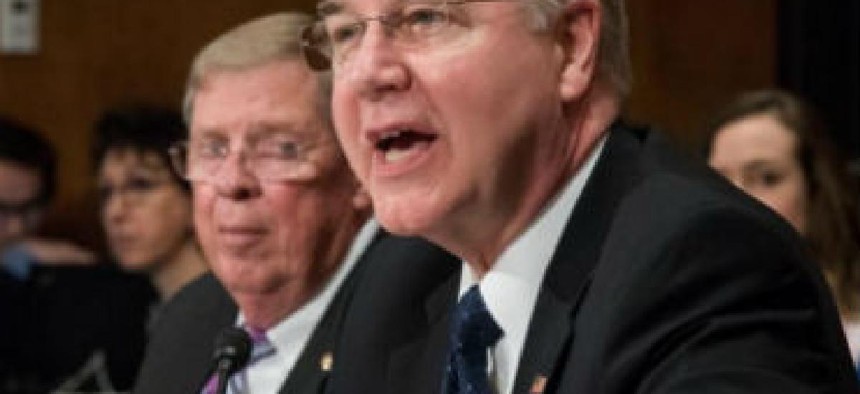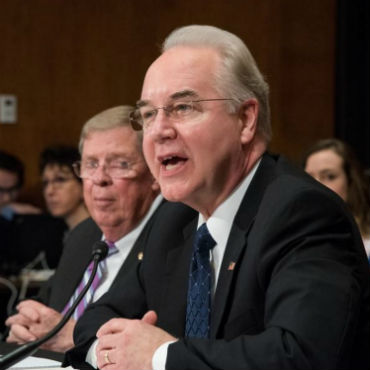Price: Docs aren't 'data-entry clerks'

The nation's top health official wants to reduce the burden he says health IT regulation puts on practitioners.

HHS Secretary Tom Price, shown here at his Senate confirmation hearing, wants to ease the burdens health IT regulations put on practitioners.
The nation's top health official wants to encourage the development and use of health IT and electronic health records, but not at the expense of the doctor-patient relationship.
Health and Human Services Secretary Tom Price, an orthopedic surgeon and former member of Congress, told an audience of health data experts that he wants to "make health IT work for clinicians," but he is concerned that the current emphasis on electronic health record adoption threatens to turn doctors and nurses into "data-entry clerks."
"Data is absolutely crucial, don't misunderstand me. It is absolutely vital that we have all the data that we can and we use it in an evidenced-based manner so that we can provide better care and better quality of care to patients. But we need our physicians to be patient-facing, not computer-facing, which is what many of them feel they are right now," he said.
Price also bemoaned continued problems in establishing rules of the road for data interoperability between electronic health records systems.
"I'm just a simple orthopedic surgeon," he said. "To me, interoperability made all the sense in the world." He added that he thought putting the principle of information sharing into practice, "ought to be doggone simple."
The fact that interoperability isn't so simple takes up a lot of time at the Office of the National Coordinator for Health IT at HHS. The office, among its other duties, promulgates standards and guidance for the use of electronic health records. Under the Health Information Technology for Economic and Clinical Health Act of 2009, the U.S. spent more than $25 billion on subsidies to encourage practitioners to adopt electronic health records. The subsidy was the carrot; the stick is that in the coming years recipients of these subsidies are expected to demonstrate "meaningful use" of electronic health records systems or else face consequences when it comes to reimbursement for services for big government payers -- notably the Medicare system.
In 2016, a number of health care systems, tech companies and developers signed an "interoperability pledge" from ONC, committing to sharing information seamlessly and using common standards. Price praised this effort and said progress along these lines would be encouraged and incentivized.
"We need to build on that," Price said. "This administration is committed to doing all that we can to help align those incentives and promote true interoperability."
Price said he wanted HHS to "encourage interoperability from the 60,000-foot level," by supporting "rules of the road" but not getting into the weeds on dictating standards and specifications.
NEXT STORY: Senate bill would end shutdown politics



